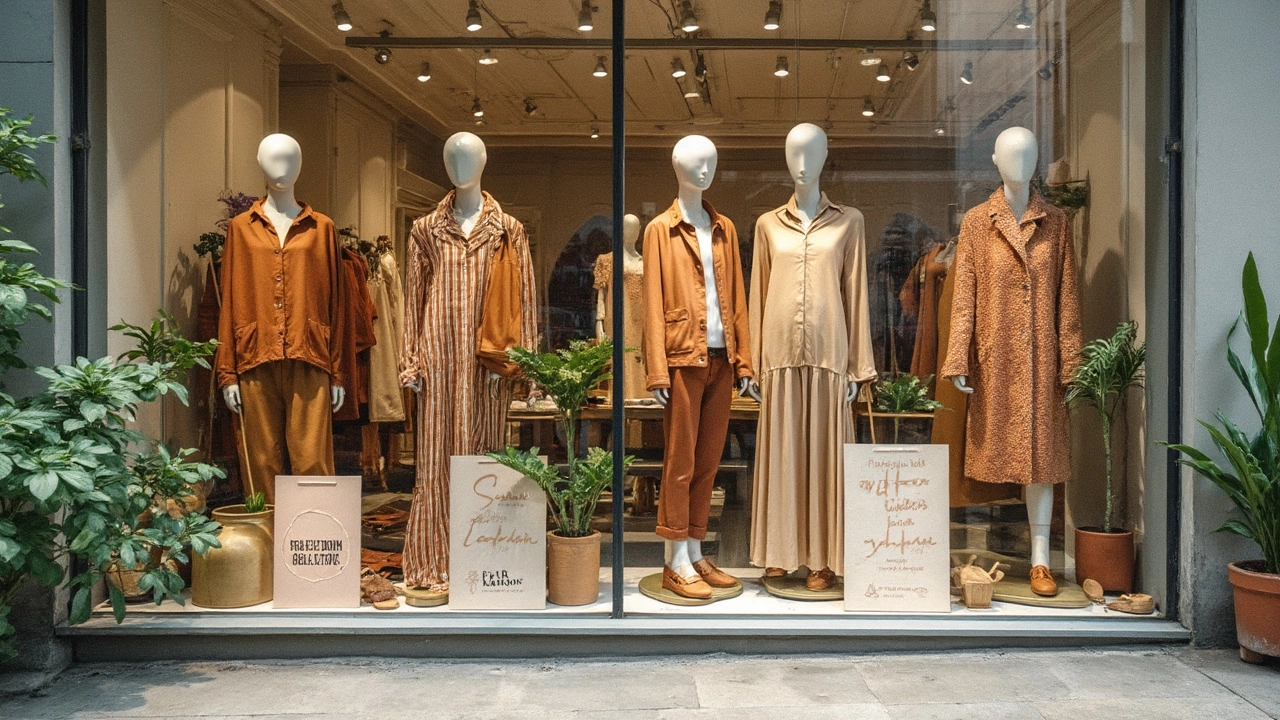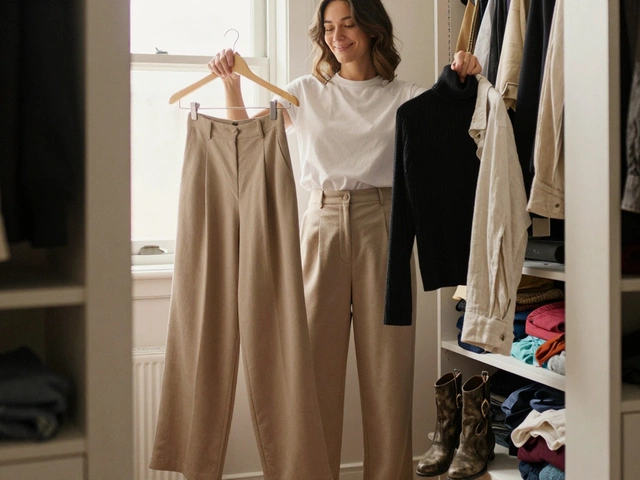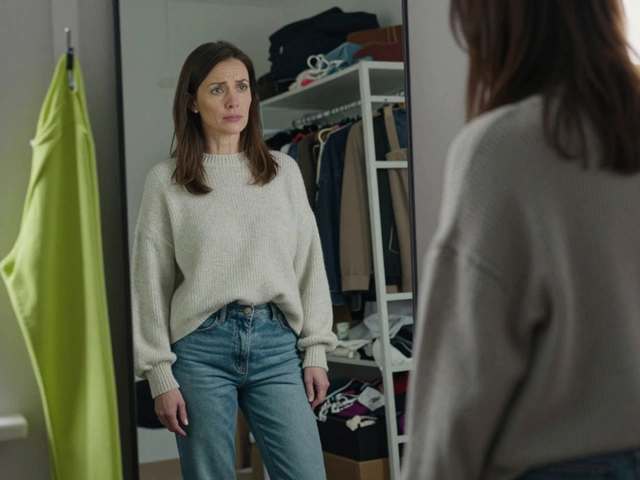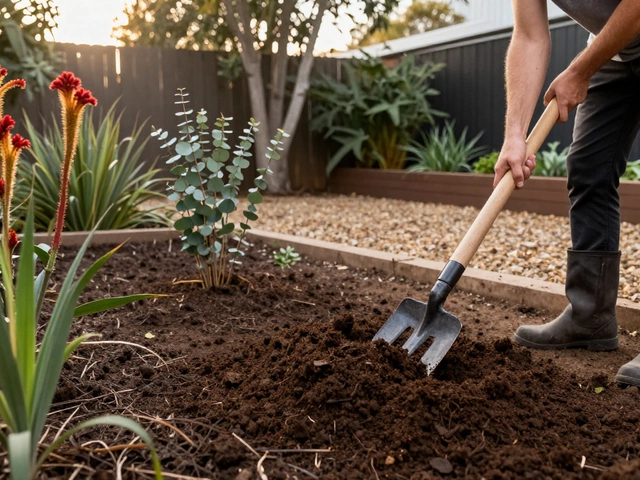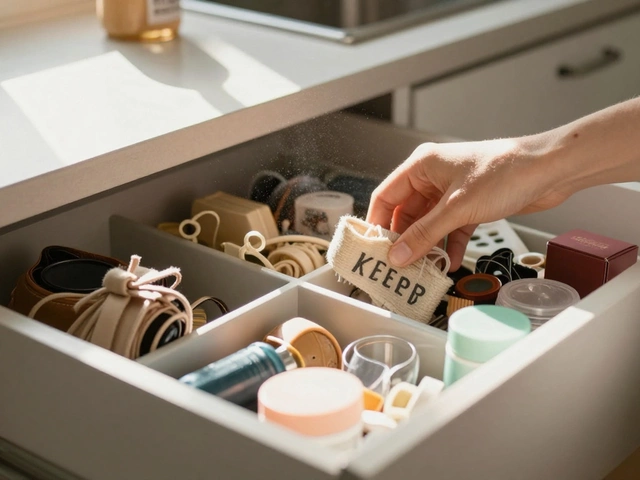Ever wonder what sustainable fashion really means? At its core, it's about making choices that don't trash the planet and treating folks in the supply chain fairly. It's more than just a buzzword—it's a call to rethink the way we approach our closets and shopping habits.
Let's break it down. Sustainable fashion often focuses on the materials we wear. Think organic cotton, recycled fabrics, or innovative options like Tencel and hemp. These materials are designed to leave a smaller footprint. But there's more to it than that.
We're also talking about ethical practices. This means ensuring fair wages and safe working conditions for garment workers, which are key to shaking up the way the fashion industry operates. Support brands that care about these issues, and you're on your way to making a positive impact.
- Breaking Down Sustainable Fashion
- The Role of Materials
- Ethical Practices in Fashion
- Tips for a Sustainable Wardrobe
- Brands Leading the Charge
Breaking Down Sustainable Fashion
Sustainable fashion, at its simplest, is about making clothing with a conscience. It's about choosing smarter, kinder ways to produce and consume clothes. This means considering both the environmental impact and the social aspects of how clothes are made and sold.
What Makes Fashion Sustainable?
First off, sustainable fashion focuses greatly on materials. Brands aiming for sustainability often use materials like organic cotton or recycled polyester. These materials require fewer resources like water and pesticides. A study found that producing recycled polyester uses 59% less energy compared to virgin polyester. Crazy, right?
Then, there's the production process. Sustainable clothes are made with methods that lower waste and pollution. For example, dyeing processes that save water or factories powered by renewable energy.
Social Responsibility
But it's not just about the environment. Ethical sustainable fashion also looks after the people involved. This means fair wages, safe working environments, and respecting workers' rights. Brands who care about these practices often have certifications to show their compliance, like Fair Trade or B Corp.
Consumption and Waste
Finally, let's talk about what happens after you buy. Sustainable fashion encourages consumers to think about longevity. This means buying better quality items that last longer and finding ways to repair or recycle clothes instead of tossing them out.
- Buy fewer, but higher quality pieces.
- Repair or repurpose old clothes.
- Recycle clothes responsibly.
Taking steps toward eco-friendly clothing isn't just a trend—it's a necessary shift for the future. So next time you're shopping, think about the impact your choices have on the world.
The Role of Materials
When we say sustainable fashion, it's natural to think about what our clothes are made of. Materials play a huge part in shaping the eco-friendly landscape of clothing. Think of them as the starting point for creating more responsible and ethical fashion.
Natural Versus Synthetic
The big debate often circles around natural versus synthetic fibers. Natural options like organic cotton, wool, and linen are grown without pesticides, making them less harmful to the environment. They also tend to be more biodegradable compared to synthetics.
Now, that's not to say all synthetics are bad. Recent tech advances have brought us recycled polyester, often made from plastic bottles. Using what's already out there instead of creating new resources is a significant step in sustainability.
Innovations in Sustainable Fabrics
Innovation in fabric is where the game gets really interesting. You've probably heard of Tencel—a fabric made from wood pulp that's super soft and moisture-wicking. Then there's hemp, which grows rapidly and requires much less water than traditional crops like cotton.
The Environmental Impact
Why does this matter? Different materials impact the planet in varying ways. For instance:
- Water Usage: Cotton production is known for using tons of water. Switching to alternatives like hemp or organic cotton can save gallons of precious resources.
- Carbon Footprint: Using recycled materials reduces the energy needed to source raw materials, which in turn lowers emissions.
Choosing Wisely
So, next time you're shopping, take a look at those clothes labels. Opt for garments made with these smarter materials. It might seem like a small choice, but collectively, it makes a difference.
| Material | Water Usage | Biodegradability |
|---|---|---|
| Organic Cotton | Low | High |
| Recycled Polyester | Very Low | Low |
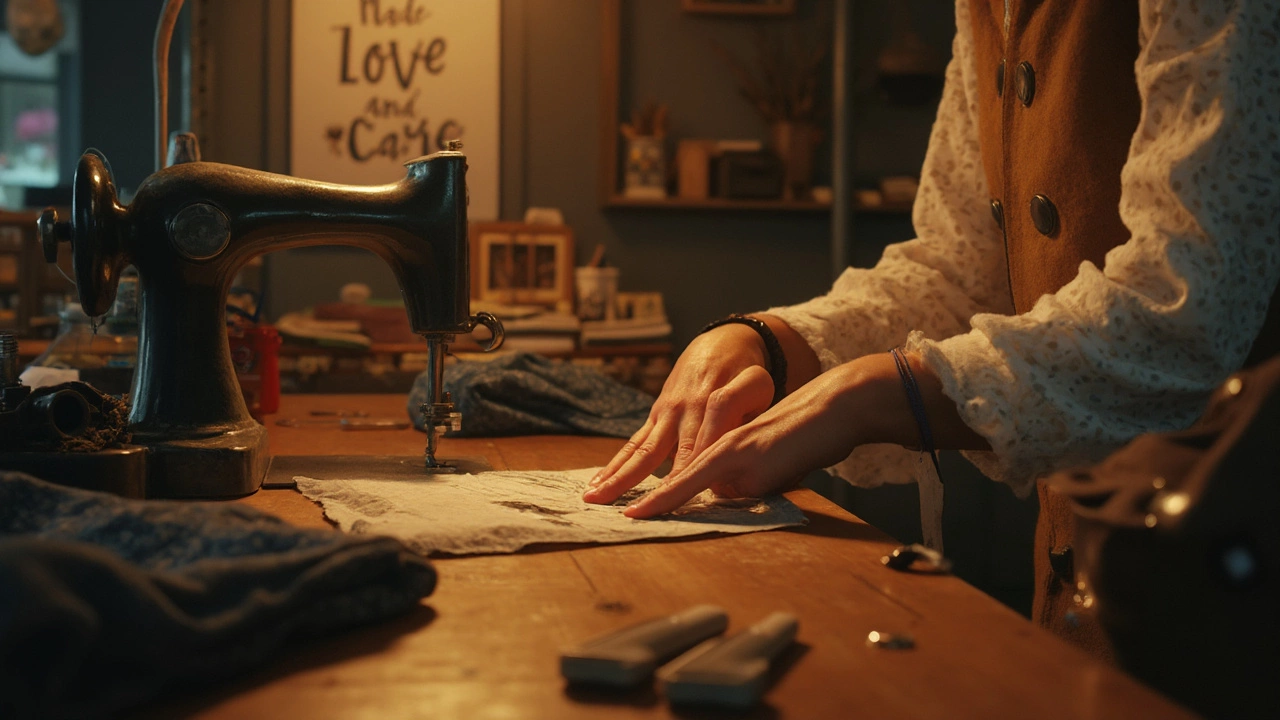
Ethical Practices in Fashion
Navigating the world of sustainable fashion, it's crucial to consider who's behind the clothes we wear. Ethical fashion isn't just about the materials; it's about making sure the people involved in creating our clothes are treated right.
Fair Wages and Safe Working Conditions
One of the big things in ethical fashion is ensuring fair wages. Many garment workers earn less than a livable wage, especially in countries with loose labor laws. Brands committed to ethical fashion prioritize paying fair wages. They also ensure safe working conditions, steering clear of sweatshop environments.
Transparency in Supply Chains
Ever wonder where your clothes come from? Transparent supply chains mean brands openly share details about their production process. This transparency helps consumers make informed decisions and holds brands accountable for their sourcing and manufacturing practices.
Examples of Ethical Brands
Some brands are leading the charge in ethical practices. For example, Patagonia is known for its commitment to fair trade practices. Everlane offers radical transparency, breaking down the cost game for consumers. These brands show how ethical practices can be woven into the fabric of the fashion industry.
Keeping an eye out for certifications like Fair Trade or Ecolabel can help you spot real ethical practices. These certifications ensure products meet specific social and environmental standards.
| Brand | Ethical Initiatives |
|---|---|
| Patagonia | Fair Trade Certified, Environmental Activism |
| Everlane | Transparent Pricing, Ethical Factories |
| People Tree | Fair Trade, Organic Materials |
Tips for a Sustainable Wardrobe
Building a sustainable wardrobe isn't as daunting as it seems. It takes some small, intentional changes that can lead to a big impact. Let's dive into some easy and effective sustainable fashion tips.
Buy Less, Choose Wisely
It might sound like a cliché, but buying less is the first step. Focus on quality over quantity. Pick pieces that you'll love and wear repeatedly. Designer Vivienne Westwood famously said,
"Buy less, choose well, make it last."It's a simple mantra that can help cut down on waste and ensure you're investing in something durable.
Go for Thrift and Second-Hand
One person's trash is another's treasure, and thrift stores are goldmines for unique finds. Second-hand shopping not only saves money but also gives clothes a second chance, reducing the demand for new production.
Learn to Repair and Upcycle
Clothes rip, buttons fall off, and sometimes you just get tired of wearing the same thing. Instead of tossing it, learn a few basic sewing skills. A quick stitch or a new button can keep something usable. Feeling crafty? Upcycling can turn something old into something fab and unique.
Know Your Materials
Get familiar with eco-friendly materials. Look for tags that say organic cotton, recycled fabrics, or Tencel. These are better for the planet and usually better for your skin.
Support Ethical Brands
Give your money to brands that treat their workers fairly. More companies are offering transparency reports or ethical certifications—use these as guides to find brands committed to good practices.
| Brand | Material used | Ethical practices |
|---|---|---|
| Eco Chic | Recycled Fabrics | Fair Wages |
| Green Threads | Organic Cotton | Safe Working Conditions |
Embracing even one or two of these tips can start you off on a more sustainable fashion journey. And who knows, you might find that small changes lead to even bigger ones.
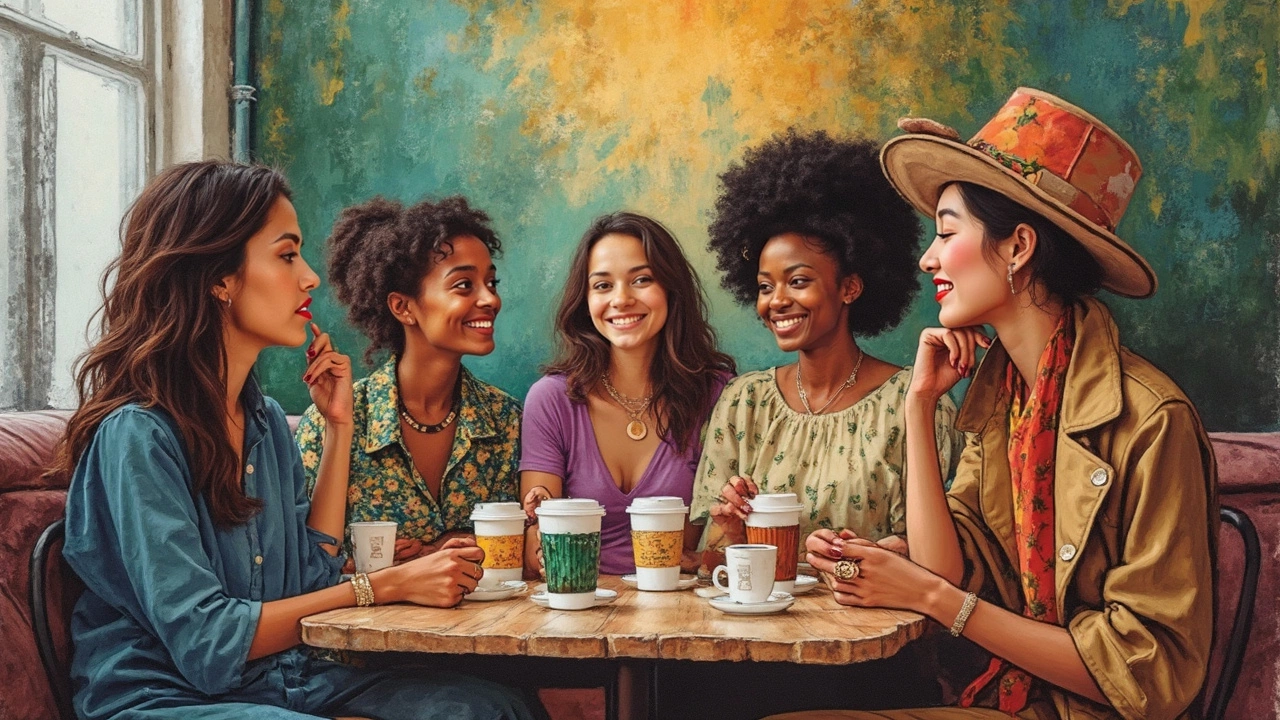
Brands Leading the Charge
The good news? Plenty of brands are stepping up to make sustainable fashion not just a trend, but a normal part of shopping. These companies are really pushing the envelope when it comes to eco-friendly and ethical practices.
Patagonia: Pioneering Eco-Consciousness
When you think of sustainability, Patagonia is often top of mind. This brand has been a front-runner in environmentally friendly outdoor gear long before it was cool. They use recycled materials wherever possible and even offer a repair and reuse program to extend the life of their clothing. Talk about walking the walk!
Eileen Fisher: All About Ethics
Eileen Fisher is another label that's championing ethical fashion. They've implemented a take-back program called "Renew" that gives old garments a second life. Plus, they focus on fair trade practices ensuring that workers are treated right. Their clothes are not only stylish but also come with the peace of knowing you’re supporting a good cause.
Allbirds: The Sustainable Footwear Game Changer
For those who love snug footwear, Allbirds should be on your radar. They craft shoes using sustainable materials like merino wool and eucalyptus tree pulp. Not just comfy, these shoes come with a minimal carbon footprint. Their mantra is simple: you shouldn’t have to choose between looking good and doing good.
Beyond the Usual Suspects
Apart from these big names, many emerging brands are paving the way with innovative ideas. For instance, Reformation publishes its carbon footprint for every item they sell. That kind of transparency is what we need more of in fashion. And don't forget about the small, local businesses that focus on responsible eco-friendly clothing—they play a big role too.
In short, whether you're stocking up on staples or finding that standout piece, options abound for making more conscious choices. By supporting these brands, you’re not just filling your wardrobe, you're joining a movement towards a cleaner, more ethical world.

